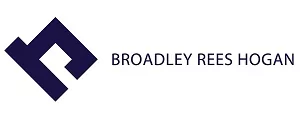The Queensland Government have recently tightened requirements for the maintenance and installation of new smoke alarms by way of the introduction of the Fire and Emergency Services (Domestic Smoke Alarms) Amendment Act 2016 (Act).
In a statement earlier this year, the Honourable Bill Byrne, Minister for Police, Fire and Emergency Services, describes the new laws as a response to the 2011 house fire in the Logan community of Slacks Creek that claimed 11 lives, which sit amongst the total of 150 lives lost in Queensland house fires since 2004.
It will be mandatory for owners to install new smoke alarms that are photoelectric, interconnected and powered by an enduring power source (hard-wired or 10 year lithium battery). These must be installed in each bedroom, between areas containing bedrooms, in any hallway servicing bedrooms and in any other storey of a domestic dwelling.
An outline of the timing requirements under the Act are as follows:
|
1 January 2017 |
The Act commences. Any new dwellings, or any dwellings on which 'substantial renovations' have occurred will need to comply. Also after 1 January 2017, any time a smoke alarm is being replaced or installed, it will need to comply with the new regulations. |
|
Within 5 years |
Dwellings that are sold or leased will need to comply. |
|
Within 5 years |
All government-owned housing will need to comply. |
|
Within 10 years |
All domestic dwellings will need to comply. |
In addition, the Act imposes penalties where an owner of a dwelling fails to:
- replace a smoke alarm within 10 years of it being manufactured; and/or
- immediately replace a smoke alarm that does not operate when tested.
In the context of a sale of a property, we understand that notification of compliance with the Act will be via a Form 24 Property Transfer Information Form, which is lodged with the Titles Registry after settlement along with the Form 1 Transfer.
We will also keep a keen eye on expected changes to the REIQ Contract in light of the Act.
The content of this article is intended to provide a general guide to the subject matter. Specialist advice should be sought about your specific circumstances.
We operate a free-to-view policy, asking only that you register in order to read all of our content. Please login or register to view the rest of this article.


